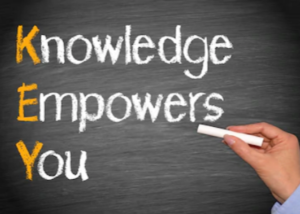An autistic woman explains what you should NOT do when it comes to preparing for an autism assessment.
I have a clinical diagnosis of Autism Spectrum Disorder.
Since being diagnosed, I have read posts in autism Facebook groups and in autism forums by people wondering how they should prepare for their ASD assessment.
Quite frankly, you should essentially NOT prepare.
The only preparation that would make sense and that might be helpful to your examiner is to bring with you some “evidence” of any obsessions or special interests you’ve had in the past or currently.
For example, I brought with me some illustrations I’d done in childhood, reflecting special interests.
But other than that, I came into the evaluation room a total blank, not knowing at all what was going to happen – other than that part of the testing would be for IQ.
Why You Should Be Unprepared for an Autism Assessment
I didn’t want to know what the examiner was looking for. I figured that if I did know, this might – in some strange subconscious or even conscious way – swing my responses in the direction of neurotypical.
My assumption, of course, is predicated on the idea that an ASD assessment would fail to detect autism if the client knew what the examiner was looking for.
This assumption implies an inherent weakness in the assessment, which includes the ADOS: autism diagnostic observation scale.
Of course, the ADOS, plus other components of an ASD evaluation, are designed to override the client’s preconceived notions, expectations, anticipations and other types of pre-existing knowledge of what goes on in these assessments.
Nevertheless, I – in true autistic fashion – overthought the whole thing and made sure not to expose myself to ANY data pertaining to how these evaluations are conducted.
This meant that, for instance, if I came upon the title of an article in my content feed about “what to expect” or “how to prepare” for an autism assessment, I refused to read it.
Or, if I was reading an article by an autistic person, and the narrative began heading in the direction of what goes on during an assessment, or how that individual responded to a particular element of the assessment, I immediately closed out the page.
I didn’t want to leave anything to chance. I didn’t want to know how a neurotypical might answer a certain question or otherwise respond to a prompt given by the examiner.
I’ve read of cases where people were denied an autism diagnosis based on their behavior (smiling, small-talk, good eye contact) during an evaluation.
They sought a second evaluation by a different person and were given the diagnosis.
So, in addition to making sure that you do NOT learn what goes on at these assessments and what the examiner is looking for, the next recommendation is to make sure you do NOT mask!
Because I went in there as a blank slate, I had no idea what the examiner was looking for or observing for while I completed tasks.
Of course, I knew she was “looking for something.” I just didn’t know what in the heck.
Prior to the in-person testing, I’d think of how, if I got an ASD diagnosis, I wanted it to be “pure.”
I wanted to feel that my responses had not been subconsciously influenced by any knowledge beforehand of what the examiner would be observing for.
I wanted to think, should I get the diagnosis, “Okay, I’m truly autistic! That was the raw me during that assessment! I had NO idea she was looking for that! I could honestly state that my responses were 100 percent the REAL me!”
Be Yourself in an Autism Assessment

• Leave the mask home.
• Don’t read anything on ASD assessments ahead of time.
• If possible, don’t rehearse anticipated conversations with the examiner. The avoidance of this may be difficult for some people – but just try to avoid this.
• Get a good night’s sleep.
• Dress for comfort, not style or trendiness.
• Make sure you’re well-nourished. Eat breakfast even if you’re not hungry.
• Allow yourself plenty of time to get to the assessment.
• If you’ve told anyone you’re going to get evaluated for autism – and they respond in a way that suggests that they’re going to tell you what it’s like or what to expect – immediately tell them to STOP.
• Avoid asking people what their ASD assessment was like.
• You’ll want to go in completely raw and blank.



























